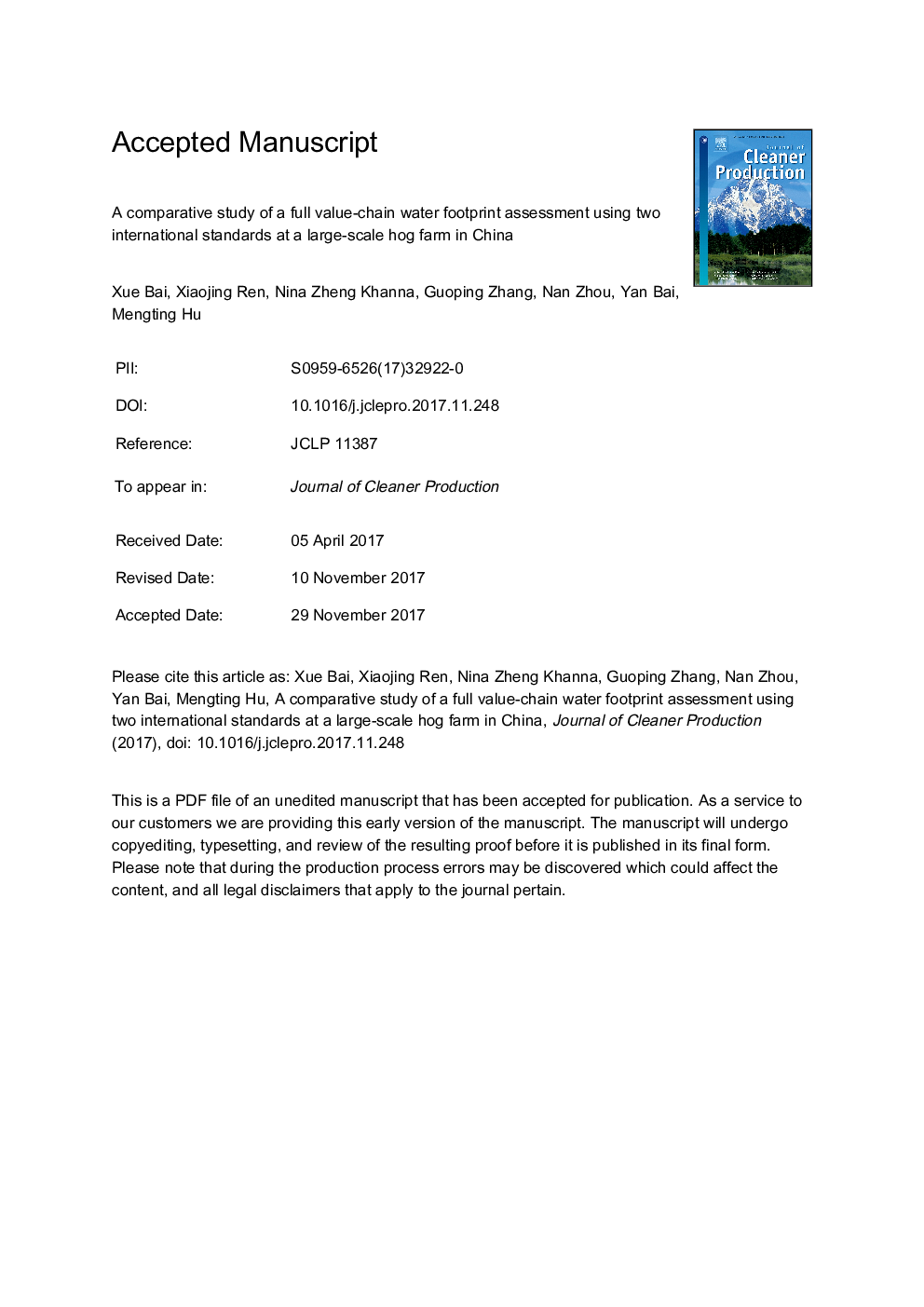| Article ID | Journal | Published Year | Pages | File Type |
|---|---|---|---|---|
| 8099184 | Journal of Cleaner Production | 2018 | 27 Pages |
Abstract
Water issues have become increasingly critical throughout the world, especially in the developing countries. Methodologies and analytical tools, such as water footprint assessment (WFA) have become more and more important for sustainable water resources management. This paper presents a comprehensive WFA for a typical large-scale intensive hog farming company located in Henan province, China. Two widely used global water footprint standards - established by the Water Footprint Network (WFN) and the International Standardization Organization (ISO) - were applied to study the water footprints of the hog farming company at both organizational and product levels. The study looks at a full value-chain in this hog farming company's operations, including one feed mill, two hog farms, one bio-fertilizer mill, and one neutralization plant. Results show that: 1) results using WFN and ISO 14046 standards present a basically consistent trend; 2) the total product (finishing hog) water footprint (WF) based on WFN standards is 3868Â m3/tonne of which the blue WF is 455Â m3/tonne, the green WF is 2452Â m3/tonne and the grey water footprint is 961Â m3/tonne; The water scarcity footprint (WSF) and water degradation footprint (WDF) based on the ISO 14046 standards is 353.67Â m3H2O-eq/tonne and 26Â 000Â m3H2O-eq/tonne, respectively; 3) the indirect WF generated during the crop cultivation stage, as raw materials for feed production, contributes more than 90% to the total WF; 4) WF produced during the hog farming stage has the greatest impact on water pollution to the water bodies in the vicinity of the farming sites; 5) the studied hog farm has relatively high water use efficiency in its direct operations than the global average, compared with the other studies' results. This paper also analyzes the pros and cons of the two standards and provides references for future research.
Related Topics
Physical Sciences and Engineering
Energy
Renewable Energy, Sustainability and the Environment
Authors
Xue Bai, Xiaojing Ren, Nina Zheng Khanna, Guoping Zhang, Nan Zhou, Yan Bai, Mengting Hu,
